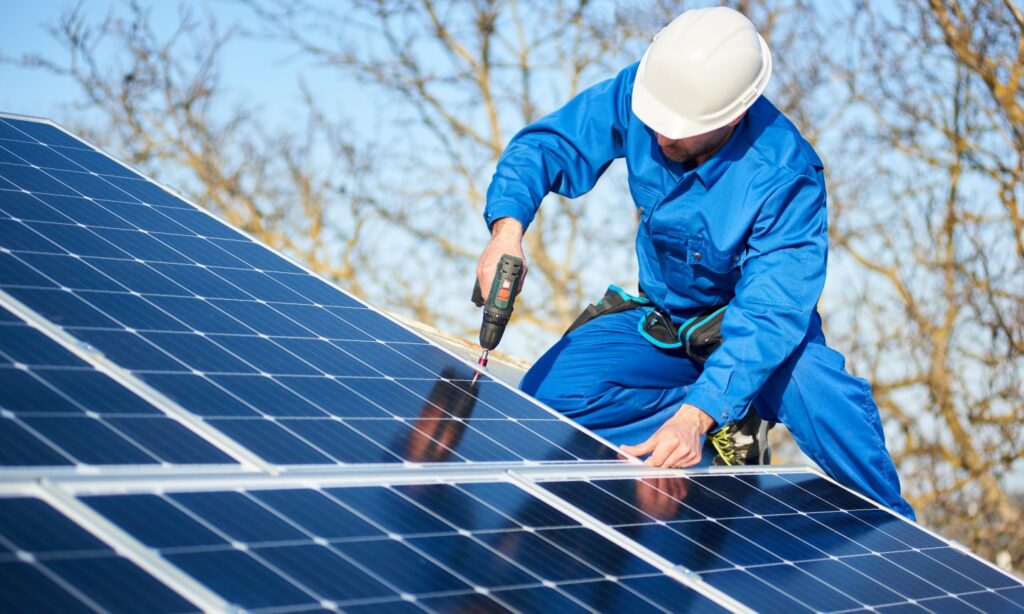Designing With Solar Panels: Factors To Consider For Optimal IntegrationThe Architecture Designs

When you think you have things under control, a deluge of solar panel brands will hit you. Each option has its advantages and guarantees. It’s like deciding what to eat from a plate with too many choices. The key is to compare things strategically to avoid getting lost in options.
Once you decide to go solar, opinions on the best panels may quickly become available. Your cousin prefers one brand, while your best friend suggests another. It feels like a popularity contest among different opinions. Eventually, you’ll have to consider numerous suggestions and choose whose advice to follow.
On the other hand, when you think about how much it’ll cost, the excitement might go down a bit. Solar panels are indeed an investment. However, you may look for rebates, incentives, and payment options while considering potential long-term savings.
Finding a way to balance high-quality technology with your budget becomes the focus. It’s also preferable to have experienced home solar panel system installers conduct the installation to ensure everything runs smoothly.
Choosing solar panels involves learning. Each step brings you closer to a sustainable and energy-efficient home. Remember, every turn on this path leads to a brighter, cleaner tomorrow. Here are some factors to consider when putting solar panels on homes:
Efficiency And Power Output
source: pinterest.com
Efficiency and power output are critical when purchasing solar panels for your home. The panels’ efficiency relates to how well they convert sunlight into electricity. Higher-efficiency panels generate more electricity from the same amount of sunlight, making them ideal for houses with small roofs.
For instance, monocrystalline panels are known for their high efficiency due to their homogeneous structure, allowing electrons to move more freely. On the other hand, polycrystalline panels are slightly less efficient but more inexpensive.
Remember, high-efficiency panels may generate more electricity during their lifetime, offsetting their higher initial cost.
Cost And Budget
Solar panel prices include the initial purchase price and installation costs. At first glance, higher-efficiency panels may look more expensive. However, they can deliver superior long-term savings due to increased energy production. You may choose the best option depending on your budget and expected return on investment.
For example, if you plan to stay in your house for a long time, investing in higher-end panels may pay off in the long run through lower energy expenses. Meanwhile, lower-cost panels may be a better alternative if you’re on a tighter budget and looking for short-term savings.
Considering the whole cost of ownership, including upkeep and probable repairs, can help you decide. While premium panels may have longer warranties, inexpensive panels may require more maintenance over time. Creating a balance between your budget and the potential long-term rewards is critical when deciding.
Aesthetics And Roof Compatibility
source: pinterest.com
The way solar panels look on your home can be a primary concern. Some panels have a sleek design and a black frame that can better match specific roofing styles. Considering aesthetics is essential, particularly if you want to preserve your home’s architectural style.
For instance, if you own a historic home with distinctive roofing features, you may prefer less noticeable solar panels. Meanwhile, considering your roof’s compatibility with the type of solar panels you prefer can help you decide. Some solar panels are more compatible to install on roofs with complex shapes, while other panels are more suitable for standard roofing designs.
On the other hand, did you know that the roof’s orientation and shading can affect how much sunlight the panels receive and how much energy they produce? Installing solar panels that align properly with your roof’s layout can improve energy efficiency.
Durability And Warranty
Solar panels are a long-term investment; thus, durability is crucial. Look for panels that come with solid warranties covering their performance and defects. Warranties are often divided into two categories:
Performance warranties, which guarantee a set amount of energy output over time.
Product warranties, which cover flaws and malfunctions.
High-quality panels frequently come with extensive warranties, reflecting the manufacturer’s confidence in the product’s lifespan. For instance, 25-year performance and 12-year product warranties are popular in the industry. Better warranties on panels can provide peace of mind.
Environmental Impact
source: pinterest.com
Choosing solar panels entails thinking about their environmental impact. Different panel production processes and materials might have varying levels of environmental sustainability. Some manufacturers claim they use environmentally friendly materials and energy-efficient manufacturing practices.
Investigating the companies behind the panels can help you learn more about their dedication to sustainability. You may help reduce overall carbon emissions from energy generation by choosing panels with lesser environmental impact. Investing in cleaner production techniques for solar panels can increase their positive impact on sustainability.
Local Incentives And Regulations
Understanding local incentives and laws is critical before selecting your solar panels. Many regions provide tax credits, rebates, or subsidies to encourage the use of solar energy. These rebates can reduce the installation’s initial cost, making it a more appealing investment.
Additionally, researching local permits and installation laws is best. Some areas have unique criteria for solar panel installations, like placement, orientation, and grid connection. Following these laws allows a smooth process, avoiding legal or logistical issues later.
Conclusion
source: pinterest.com
Selecting the appropriate solar panels can benefit you and your home. However, it requires thoroughly examining efficiency, cost, aesthetics, durability, environmental impact, and local considerations.
Making an informed decision that aligns with your energy goals, budget, and long-term sustainability objectives is best. Carefully assess these factors and seek professional help when necessary.
The post Designing With Solar Panels: Factors To Consider For Optimal Integration appeared first on The Architecture Designs.





